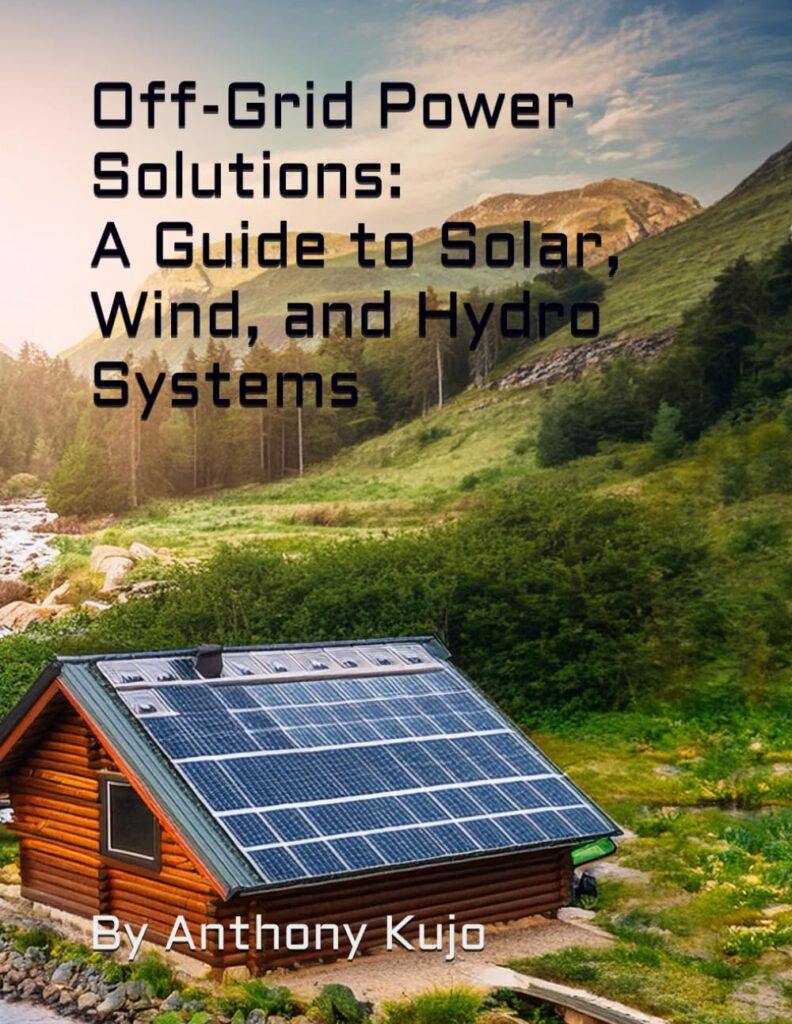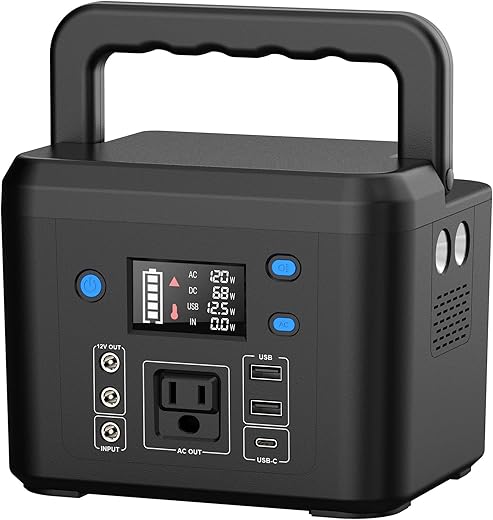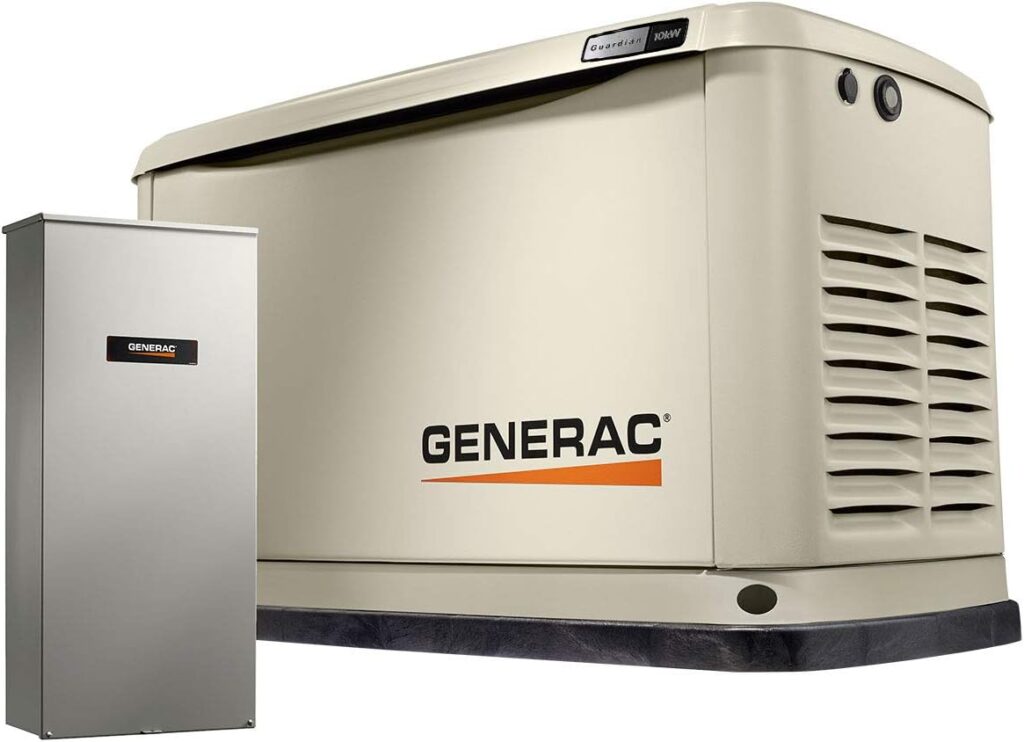Off-grid living is not just a trend; it’s a powerful commitment to sustainability. In “Off-Grid Power Solutions: A Guide to Solar, Wind, and Hydro Systems,” I explore the essential components of renewable energy. This guide dives into the intricacies of solar, wind, and hydro power systems, offering practical insights for achieving energy independence. It highlights economic advantages, including significant savings on utility bills, while advocating for environmental stewardship. With strategies for overcoming power outages and infrastructure limitations, this resource is designed to empower anyone seeking a self-sufficient lifestyle. Join me in discovering the path to sustainable living.
Off-Grid Energy Solutions
Off-Grid Power Solutions: A Guide to Solar, Wind, and Hydro Systems serves as an essential resource in a time when reliance on traditional energy sources feels increasingly precarious. This comprehensive guide is tailored for individuals seeking autonomy from the grid, presenting a variety of renewable energy options—such as solar, wind, and hydro—that can significantly enhance both sustainability and self-sufficiency. In my experience, making the shift to renewable energy not only empowers homeowners and community members to generate their own power but also offers them protection against rising energy costs, power outages, and an aging electrical infrastructure.
As I delve into the content of this guide, it becomes clear that off-grid power solutions are more than just practical alternatives; they symbolize a commitment to environmental stewardship. Generating electricity from renewable sources directly contributes to the reduction of carbon emissions, which is crucial in the collective fight against climate change. By stepping away from conventional energy dependency, we play an active role in preserving our planet’s natural resources for future generations. This guide provides a pathway for those motivated by economic practicality, ecological responsibility, or the pursuit of a more independent lifestyle.
For anyone considering an off-grid transition, understanding the intricacies of solar, wind, and hydro systems is paramount. I believe Off-Grid Power Solutions offers invaluable insights and practical advice, enabling readers to make informed choices that align with their energy needs and environmental goals. Whether I am helping homeowners reduce their utility bills or guiding enthusiasts toward a more sustainable lifestyle, this guide stands out as a crucial tool for anyone exploring the world of renewable energy.
Review of “Off-Grid Power Solutions: A Guide to Solar, Wind, and Hydro Systems”
“Off-Grid Power Solutions” has proven to be an invaluable resource for anyone interested in renewable energy systems, specifically solar, wind, and hydro. This guide provides a comprehensive look into various off-grid power solutions, making it an ideal starting point for homeowners and enthusiasts alike who are on the journey towards energy independence and self-sufficiency.
Comprehensive Coverage
One of the strengths of this book is its thorough exploration of different renewable energy systems. Each chapter delves deeply into:
- Solar Power: Covers the basics of solar panels, solar grid systems, and installation tips.
- Wind Power: Discusses the functionality of wind turbines, site selection, and maintenance.
- Hydro Power: Explains small-scale hydro systems and how to assess water sources.
These sections are not only informative but also structured in such a way that encourages practical application. For instance, I found the installation tips particularly useful; they included information on assessing one’s property for solar and wind viability, which I can apply to my own home.
Economic and Environmental Benefits
The book does an excellent job of outlining the economic incentives of switching to off-grid power solutions. The expected savings on utility bills can be substantial. By calculating initial installation costs against long-term energy savings, I was able to better understand the return on investment associated with these systems.
Additionally, the environmental benefits are equally compelling. The guide highlights the importance of utilizing renewable resources in combating climate change. It also emphasizes stewardship, encouraging readers to consider not just the personal benefits but also the broader effects of renewable energy on the planet.
Overcoming Power Challenges
Navigating power outages and infrastructure challenges is a significant concern for many homeowners. This resource provides valuable strategies that can empower me and others to tackle these issues head-on. Practical tips on power storage, battery systems, and backup generators were laid out in an easily digestible format. I was particularly impressed with the section on resilience planning, which provides actionable steps to safeguard against potential power interruptions.
Tailored for Sustainable Living
The book is clearly tailored for individuals committed to sustainable living. The author understands the motivations of homeowners, offering insights and resources that motivate readers toward a greener lifestyle. I appreciated the practical case studies and testimonials from individuals who have successfully implemented these systems, as they provide a relatable framework for my own goals.
Bottom Line
“Off-Grid Power Solutions” is an essential guide for anyone considering the transition to renewable energy. It combines comprehensive information with economic practicality and environmental awareness, making it a well-rounded resource. Whether you are just initiating your journey or looking to enhance your existing systems, this book offers the knowledge and inspiration needed to thrive in a sustainable future.
Off-Grid Living: 12,000W Power System Fuels Entire Homestead Without Permits! Bluetti AC500+B300S Setup
Explore Diverse Options to Power Your Off-Grid Lifestyle Sustainably
Comprehensive Buyer Guide: Selecting the Right Off-Grid Renewable Energy Solutions
Choosing the right off-grid renewable energy solution is a crucial decision for anyone looking to harness energy sustainably. Whether you’re considering solar, wind, or hydro systems, several factors must be taken into account to ensure that your investment meets your energy needs efficiently. This guide will help you navigate through the essential considerations and steps necessary to make an informed decision.
Key Considerations
1. Assess Your Energy Needs
- Calculate Daily Usage:
- List appliances and devices.
- Determine their wattage and average daily usage hours.
- Total Your Energy Demand:
- Sum total watt-hours needed daily. This will guide your system size.
2. Understand System Types
- Solar Power Systems
- Suitable for areas with ample sunlight.
- Requires space for solar panels.
- Wind Power Systems
- Effective in locations with consistent winds.
- Consider turbine height and placement.
- Hydro Power Systems
- Must have access to flowing water.
- Depend on water flow rate and head height.
3. Consider Location and Geography
- Solar: Areas with less cloud cover yield higher efficiency.
- Wind: Assess local wind patterns and speeds. A minimum average of 10 mph is typically required for effective performance.
- Hydro: Identify local water sources and regulations regarding their use.
4. Evaluate Budget and Cost
- Initial Investment:
- Price for solar panels, wind turbines, or hydro systems—including installation.
- Maintenance Costs:
- Factor in long-term upkeep and repair expenses.
- Incentives and Rebates:
- Research available government grants or tax incentives.
5. Consider System Size and Scalability
- Sizing:
- Ensure the configuration is sufficient to meet your energy demands.
- Flexibility:
- Investigate options that allow future expansions or upgrades if your energy requirements change.
6. Regulatory and Permitting Requirements
- Local Regulations:
- Check zoning laws and restrictions related to off-grid systems.
- Permitting:
- Some systems may require permits for installation, especially for hydro systems.
Steps to Select Your Off-Grid System
Step 1: Analyze Your Energy Needs
- Use a detailed worksheet to calculate total energy consumption.
- Identify peak energy usage periods.
Step 2: Research Available Technologies
- Investigate the pros and cons of solar, wind, and hydro systems based on your location and needs.
- Read customer reviews and case studies to assess performance in different conditions.
Step 3: Consult with Professionals
- Seek advice from renewable energy specialists for personalized system recommendations.
- Obtain quotes from multiple contractors to compare prices and services.
Step 4: Evaluate and Compare Options
- Make a list of preferable systems based on technology, costs, and reviews.
- Use a matrix to weigh the strengths and weaknesses of each option.
Step 5: Plan for Installation and Maintenance
- Discuss installation times and maintenance needs with your chosen contractor.
- Ensure you understand how to troubleshoot and maintain your system.
Tips and How-Tos
- Installation DIY: If you have technical skills, consider DIY installation to save costs on labor. Follow manufacturer guidelines meticulously.
- Monitor Performance: Install metering equipment to track energy generation and consumption.
- Emergency Backup: Consider incorporating battery storage or a backup generator to provide energy in case of system failure or extended periods of low generation.
Summary
Selecting the right off-grid renewable energy solution involves careful assessment of your energy needs, understanding the types of systems available, considering geographical factors, evaluating budget constraints, and being aware of regulatory requirements. By thoroughly analyzing your options and consulting with professionals, you can make an informed decision that aligns with your energy demands and sustainability goals. With the right system in place, you can achieve energy independence and contribute to a greener future.
Discover the potential of renewable energy with “Off-Grid Power Solutions: A Guide to Solar, Wind, and Hydro Systems” and empower yourself to create a sustainable future. Let’s explore innovative energy options together.










This book is a game changer for anyone looking to live off the grid! 🌞
Anyone tried combining these systems? Would love to hear about your experiences! 🌍
Love how it breaks down the complexities of different systems! Easy to understand. 👍
Wish I had this book before I installed my solar panels! So many helpful insights! 😅
Super useful info! Just started my journey into renewable energy. Excited! ⚡
I never realized I could generate power from the river behind my house! Great tips! 🏞️